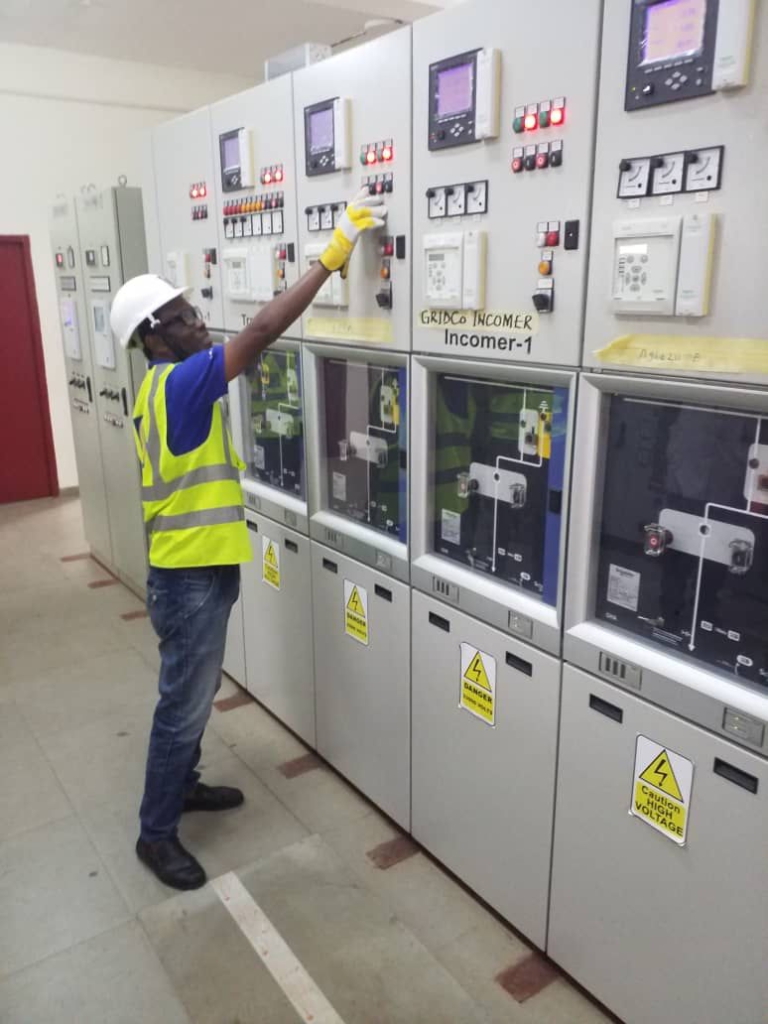
Government’s recent push for private sector participation in the Electricity Company of Ghana (ECG)’s retail operations has sparked widespread opposition from the Trades Union Congress (TUC) and the Public Utility Workers’ Union (PUWU).
The unions argue that ECG is not just another state-owned enterprise—it is a national asset that must be protected from the pitfalls of privatisation.
Privatisation: A Familiar Threat to National Interests
The Unions say Ghana has walked this road before, stressing that in the last four decades, more than 300 state enterprises have been privatised, with over 50 outrightly liquidated.
They decried the aftermath of thousands of jobs lost, economic control ceded to foreign entities, and long-term financial burdens on the state.
“We have seen the destruction of Ghana Airways, the collapse of Ghana Telecom, and the failure of private sector management in Ghana Water Limited. Every single time, we are promised efficiency, but what we get instead is job losses, skyrocketing prices, and foreign profit repatriation,” the TUC and PUWU stated emphatically in their position paper.
The unions recall the debacle of Power Distribution Services (PDS), which was handed control of ECG in 2019 but had its contract terminated within the same year due to non-fulfilment of contractual obligations.
“What guarantee do we have that another attempt at private sector participation will not result in a similar disaster?” PUWU queried.
“We are simply not willing to take that risk.”
The Real Challenges of ECG: Political Interference and Structural Deficiencies
The TUC and PUWU acknowledged that ECG has its challenges—but they firmly believe these issues stem from systemic failures that can be fixed without privatisation.
Among the most pressing concerns is the excessive political interference that has stifled the company’s efficiency.
“In the last 15 years, ECG has had seven different Managing Directors. Every new government appoints its own leadership, often disregarding existing strategic plans. How can any institution succeed under such instability?” the unions asked.
Beyond leadership instability, ECG has also been burdened by questionable procurement practices, they said.
“There are about 58 different types of meters in use by ECG, many of them substandard, and most were forced on the company through political directives. The result? Inefficiency, high technical losses, and growing debts,” the unions revealed.
Additionally, the government itself owes ECG millions in unpaid electricity bills, while politicians continue to distribute ‘political meters’—unregistered and unbilled connections that further strain the company’s finances.
“ECG is bleeding, not because it cannot function, but because it has been deliberately handicapped. The government should focus on fixing these structural problems instead of handing over national assets to profit-driven entities,” TUC declared.
Privatisation: A Risk to Ghana’s Economic Sovereignty
One of the most alarming concerns raised by the unions is the long-term economic consequences of private sector involvement in ECG.
If a foreign investor takes control, a significant portion of the company’s revenue will be repatriated, weakening the country’s financial standing.
“When Vodafone acquired Ghana Telecom for $1 billion, they have since transferred five times that amount back to their shareholders abroad. We cannot afford to let that happen with our electricity sector,” PUWU warned.
Furthermore, the unions pointed out that selling off ECG would not magically fix the pricing model of the energy sector.
“Ghana buys electricity generation capacity in dollars but sells power in cedis. This mismatch is a ticking time bomb, and privatisation will not change that reality,” the statement added.
A Better Path: Reform, Not Privatisation
Rather than inviting private sector participation, the unions propose strategic reforms to strengthen ECG and make it more efficient under public control.
Key recommendations include:
- Depoliticising ECG management by allowing leadership stability and operational independence.
- Creating a stakeholder board that includes representatives from major think tanks, social groups, and labour unions to enhance governance.
- Enforcing financial discipline by ensuring the government and state entities pay their electricity bills promptly.
- Improving procurement processes through competitive, transparent tenders for all ECG acquisitions.
- Mandating pricing reforms that align electricity generation costs with tariffs to prevent mounting debts.
“We do not need to sell ECG. We need to fix ECG,” PUWU asserted.
“Privatisation will not solve the problems—it will only shift control to foreign investors who are more interested in profit than in national development.”
“We urge the government to abandon any plans of privatisation or private sector participation. Ghana’s energy future must be secured through accountability, efficiency, and public stewardship—not through the sale of national assets,” the unions concluded.
DISCLAIMER: The Views, Comments, Opinions, Contributions and Statements made by Readers and Contributors on this platform do not necessarily represent the views or policy of Multimedia Group Limited.

